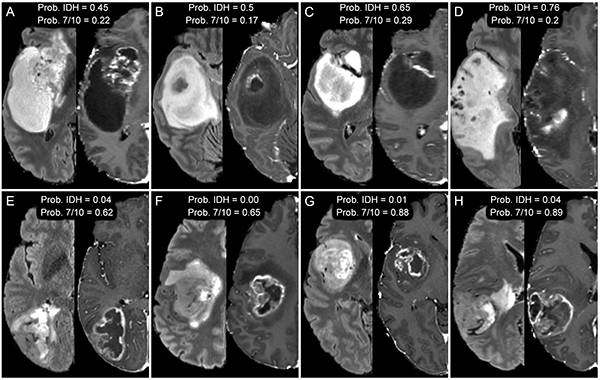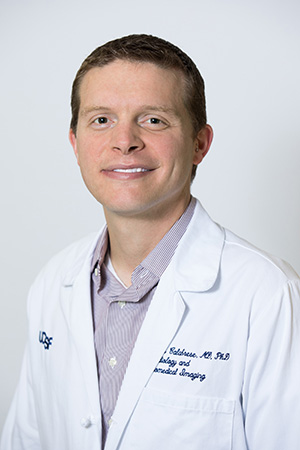An AI-Driven "Virtual Biopsy" Approach for Identification of Genetic Alterations in Glioblastomas

Glioblastoma is the most common form of brain cancer, yet it remains challenging to treat. Fortunately, there are numerous ongoing clinical trials at UC San Francisco and around the world focused on treating glioblastoma with targeted therapies such as drugs designed to target unique genetic alterations that may be present in each individual patient's tumor. While promising, the targeted therapy approach is limited by the need for tumor sampling (i.e., biopsy) and genetic sequencing, which are costly and sometimes limited in availability or feasibility.
A new study from scientists at UCSF Radiology and Biomedical Imaging uses artificial intelligence (AI) to predict the presence of specific genetic alterations in individual patient's tumors using only non-invasive brain MRI. Using this AI-driven "virtual biopsy" approach, they were able to accurately identify several clinically relevant genetic alterations including some that are under investigation as potential treatment targets.
 Evan Calabrese, MD, PhD, radiology chief resident, is first author on paper, published in Scientific Reports (Nature). Javier Villanueva-Meyer, MD, assistant professor of clinical radiology, and Soonmee Cha, MD, professor in residence and vice chair of Education, are also authors.
Evan Calabrese, MD, PhD, radiology chief resident, is first author on paper, published in Scientific Reports (Nature). Javier Villanueva-Meyer, MD, assistant professor of clinical radiology, and Soonmee Cha, MD, professor in residence and vice chair of Education, are also authors.
The work represents an important step towards a fully automated method for non-invasive, imaging-based identification glioblastomas with IDH mutations and certain other molecular biomarkers relevant for guiding therapy and determining prognosis. The study itself was a small, retrospective study; however, the rapid and automated nature of the proposed method from UCSF Radiology scientists would allow straightforward application to larger datasets and prospective studies.
“With further work, our overarching goal is to obviate the need for brain tumor biopsy using non-invasive MRI-based methods and to help guide the use of targeted therapies that have been shown to improve survival in patients with glioblastoma,” says Dr. Calabrese.
